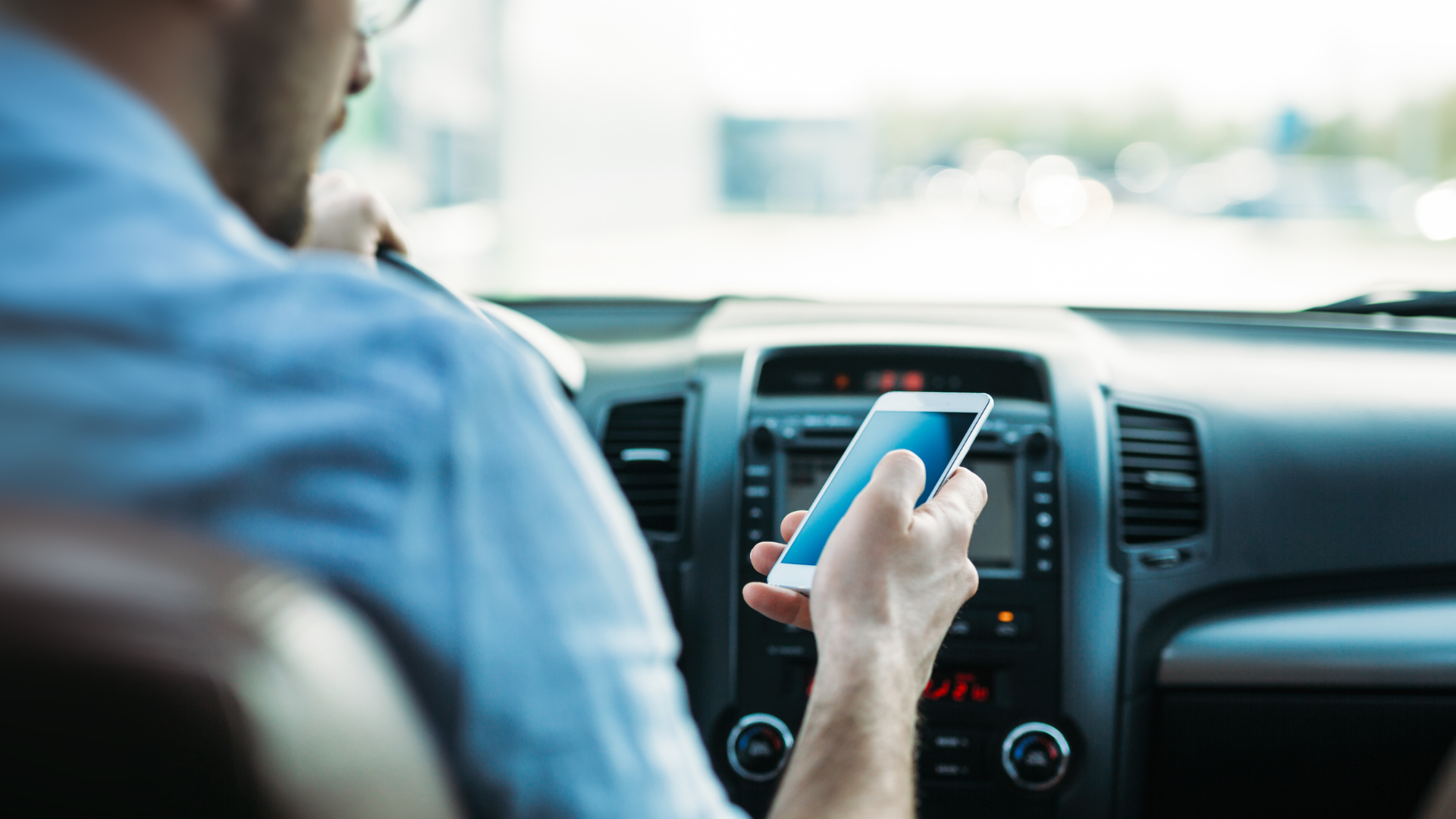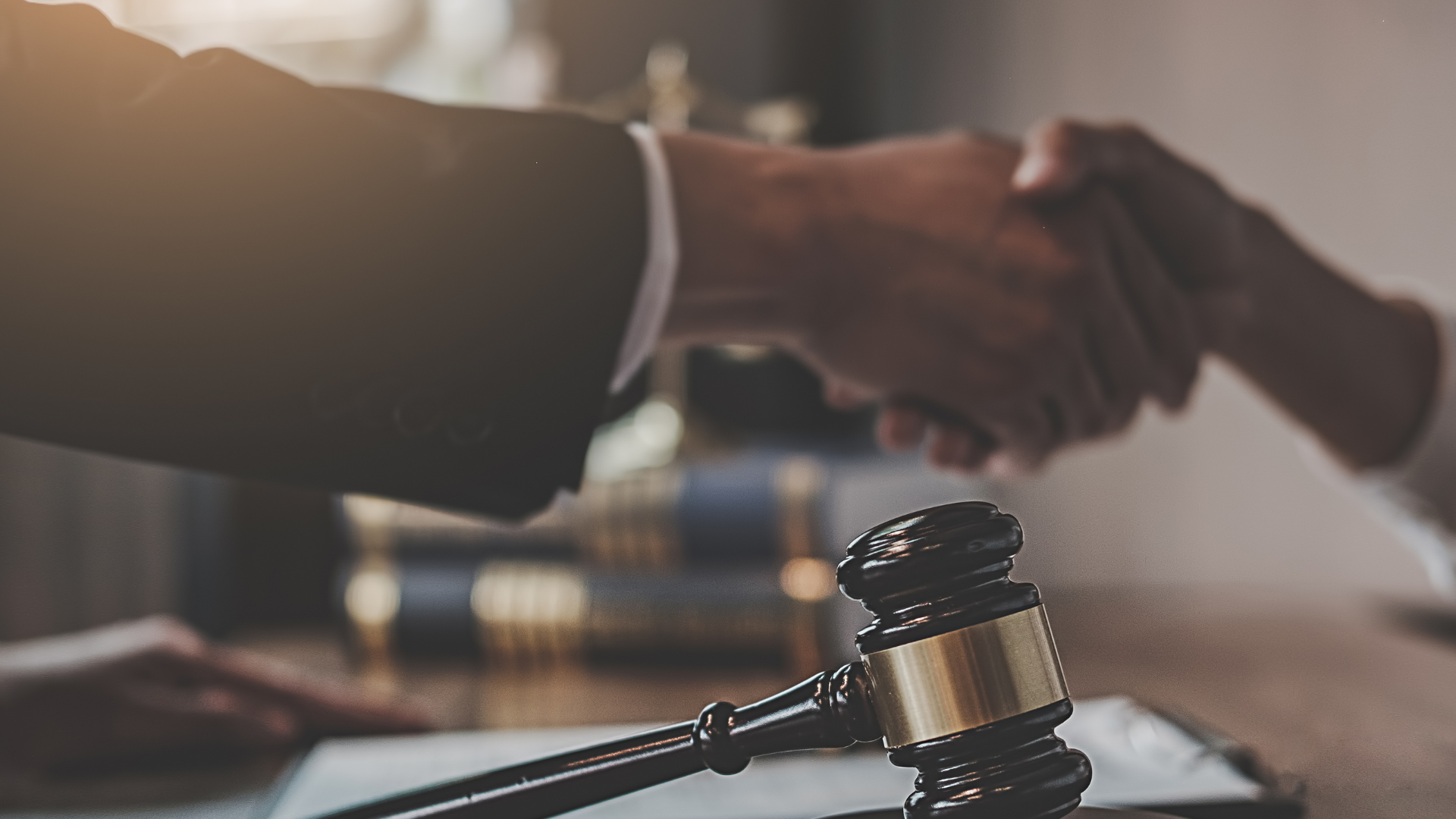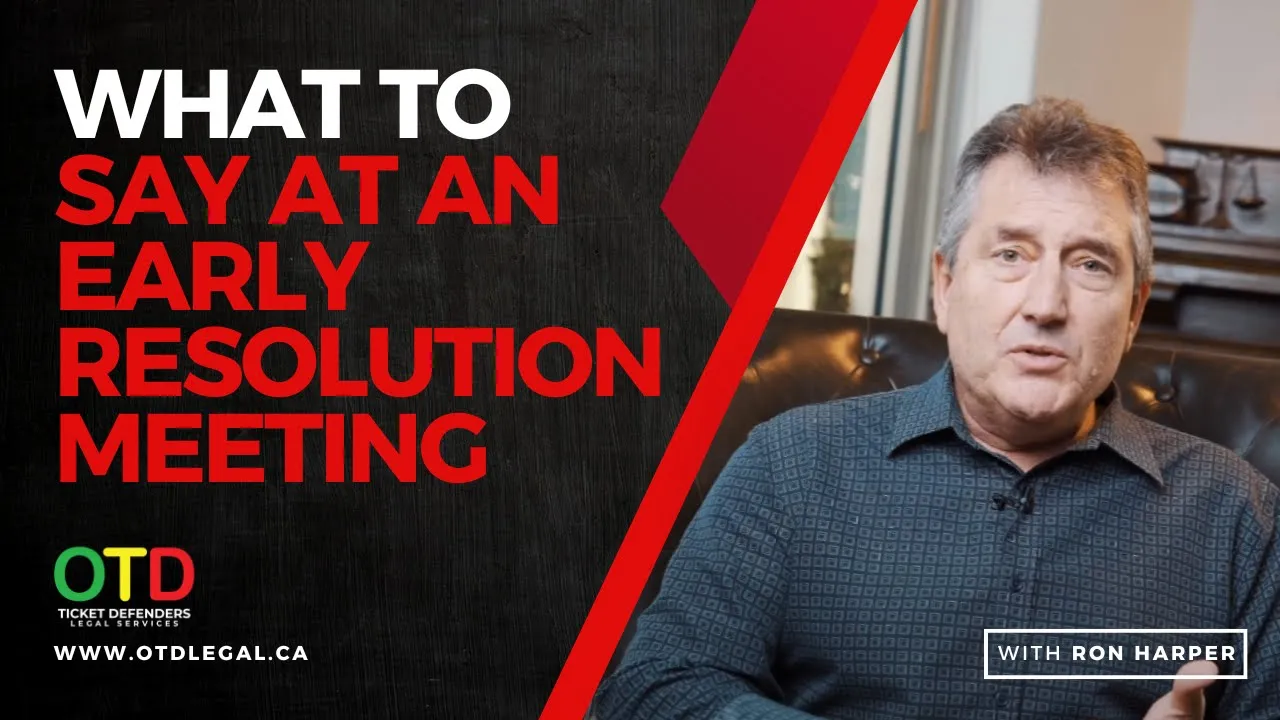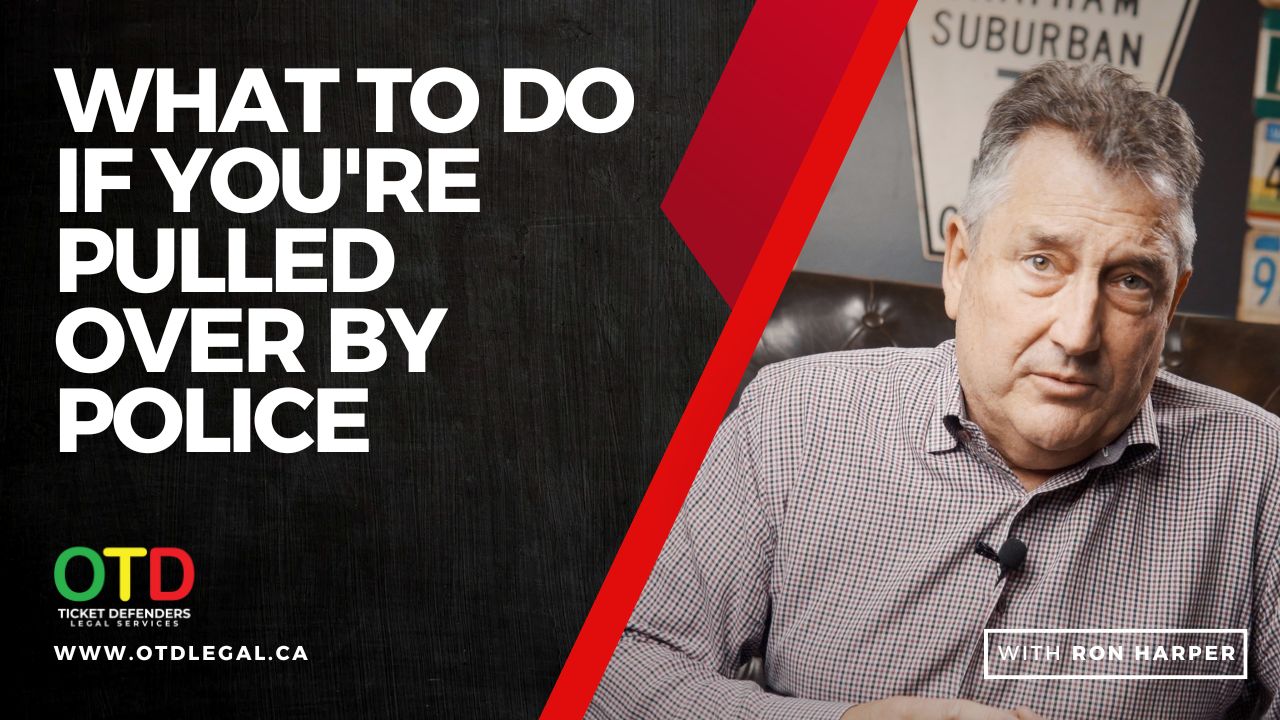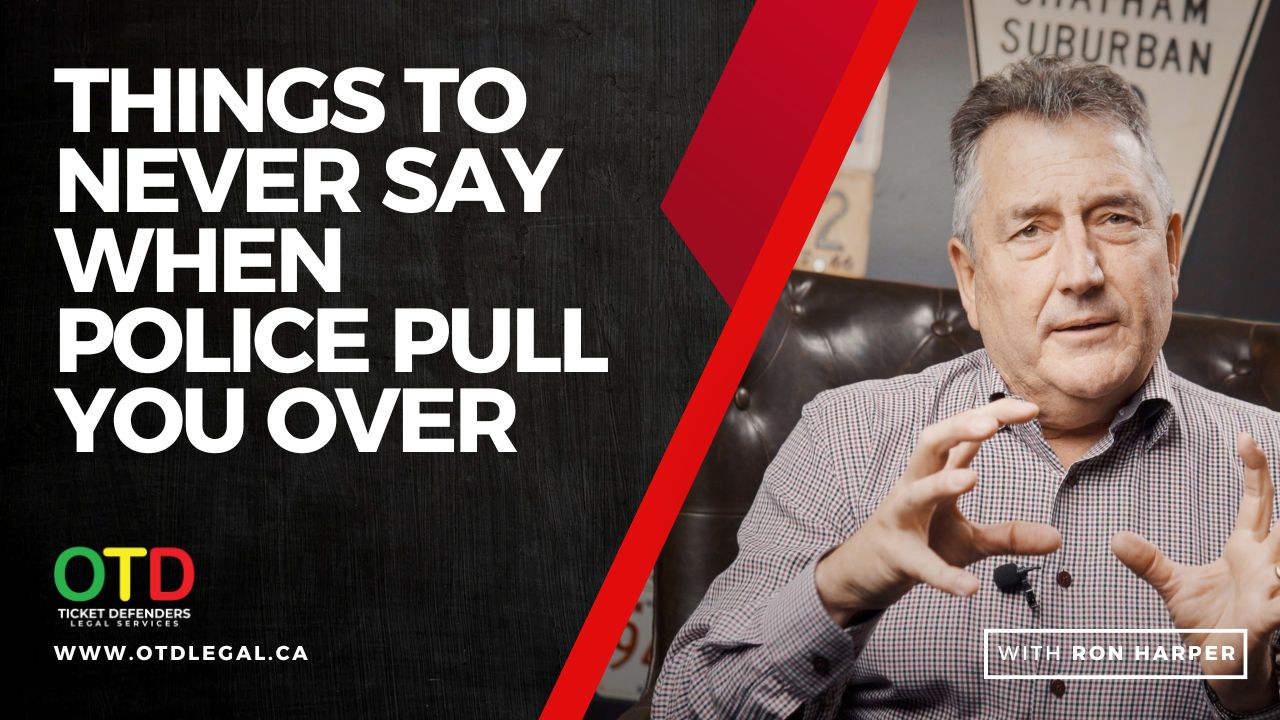Dashcam footage can be a game-changer in fighting traffic tickets in Ontario—but only if it’s clear, admissible, and properly used. It won’t guarantee dismissal, but it can be the key to showing what really happened.
Quick Takeaways:
- Objective proof: Dashcams provide unbiased video of road conditions, your driving behavior, and interactions with police.
- Great for disputes: Footage can clarify contested facts – like who had the green light or whether you made a safe lane change.
- Environmental evidence: Videos capture weather, visibility, and road hazards that may support a “reasonable driving” defence.
- Supports legal strategy: Audio and GPS data can reveal procedural errors or help challenge an officer’s version of events.
- Court admissibility matters: Footage must be relevant, authentic, and clear. Poor-quality or altered videos may be tossed out.
- Privacy laws apply: Audio recording can raise legal issues – check your dashcam settings and consult legal counsel if unsure.
- Proper storage is critical: Save footage immediately and keep the original file untouched to preserve its legal value.
- Legal guidance helps: Professionals know how to present footage, identify supportive details, and use it effectively in negotiations or court.
Why This Matters: Even a minor traffic conviction can raise your insurance rates for years. Dashcam footage could be the difference between a fine and a full defence.
Read on to learn how to preserve, present, and strategically use your dashcam footage to fight your traffic ticket – and why professional legal help can make all the difference.
In today’s world of increasing traffic enforcement and complex road situations, dashcam footage has emerged as a powerful tool for drivers facing traffic tickets in Ontario. At OTD Legal, we’ve seen firsthand how quality dashcam evidence can make the difference between a conviction and a successful defence. This comprehensive guide explores how dashcam footage can strengthen your case and what you need to know about using this technology effectively in traffic court.
Why Use a Dashcam?
The decision to install a dashcam goes far beyond simply recording your daily commute. In Ontario’s increasingly complex traffic environment, these devices serve as your silent witness, providing protection that extends well beyond what most drivers initially consider.
Protection Against False Accusations
Traffic stops can sometimes involve misunderstandings or disputed facts about what actually occurred. Without independent evidence, it often becomes your word against the officer’s observations. Dashcam footage provides an objective account that can clarify these disputes. Whether you’re accused of running a red light, failing to signal, or driving carelessly, video evidence can demonstrate what really happened during those crucial moments.
The value becomes particularly apparent in complex traffic situations where multiple factors contribute to an alleged violation. For instance, if you’re ticketed for an unsafe lane change, your dashcam might reveal that you were avoiding a road hazard or responding to another driver’s dangerous behavior that the officer didn’t witness.
Documenting Road and Weather Conditions
Ontario’s diverse weather conditions create challenging driving situations that can contribute to traffic violations. Your dashcam continuously records environmental factors that might be relevant to your defence, including visibility conditions, road surface conditions, and weather-related hazards that could justify certain driving decisions.
This documentation proves especially valuable when defending against charges that involve the “shifting standard of care” principle in Ontario law. Courts recognize that drivers must adapt their behavior to conditions, and dashcam footage can demonstrate that your driving was reasonable given the circumstances you faced.
Recording Police Interactions
Modern dashcams don’t just record the road ahead – many also capture audio and some record the vehicle’s interior. This capability can document your entire interaction with law enforcement, from the initial stop through the issuance of your ticket. Such recordings can be particularly valuable if there are questions about proper procedures being followed during your stop.
The footage might reveal important details about the stop that could affect your case, such as the officer’s positioning, visibility conditions, or statements made during the interaction. This information can be crucial for your legal representative when developing your defence strategy.
Insurance and Long-term Benefits
Beyond traffic ticket defence, dashcam footage provides ongoing protection for insurance claims and can help prevent fraudulent accusations. The objective evidence helps establish fault in accidents, potentially saving you thousands in increased premiums over time. When you consider that a single traffic conviction can impact your insurance rates for years, the investment in a quality dashcam often pays for itself many times over.
Capturing Driving Behaviour and Interactions with Police
The effectiveness of dashcam footage in traffic ticket defence depends heavily on what the camera captures and how that information can be used to support your case. Understanding what makes footage valuable helps you maximize the protective benefits of your investment.
Speed and Driving Behavior Documentation
Modern dashcams often include GPS functionality that records your speed, location, and time stamps. This data can be invaluable when defending against speeding tickets, particularly if there’s a discrepancy between the recorded speed and the officer’s measurements. The footage might also show your driving pattern leading up to the alleged violation, demonstrating consistent, safe driving behavior that contradicts claims of reckless or careless driving.
The continuous recording nature of dashcams means they capture context that might not be apparent to an officer who only observed a brief moment. For example, if you’re ticketed for following too closely, your dashcam might show that you had been maintaining a safe distance but had to brake suddenly due to unexpected traffic conditions ahead.
Traffic Signal and Sign Compliance
One of the most straightforward applications of dashcam footage involves disputes over traffic signal compliance. The timestamp and clear visual record can definitively show the status of traffic lights when you entered an intersection. Similarly, footage can document whether stop signs were clearly visible and properly obeyed, or if signage was obscured or missing entirely.
This type of evidence proves particularly powerful because it’s difficult to dispute clear video showing the actual state of traffic control devices at the moment of the alleged violation. The objective nature of the recording eliminates questions about memory, perception, or interpretation that might arise with witness testimony.
Environmental and Road Condition Factors
Your dashcam serves as a comprehensive environmental recorder, capturing road conditions, weather, visibility, and traffic patterns that might be relevant to your defence. This information can support arguments about reasonable driving behavior under challenging conditions or demonstrate that external factors contributed to the situation that led to your ticket.
For instance, if you’re charged with careless driving after a minor collision, your dashcam might show that road conditions were more hazardous than initially apparent, or that another driver’s actions forced you into a difficult situation. This context can be crucial for establishing that your driving was reasonable given the circumstances.
Police Procedure and Interaction Quality
The audio and visual record of your interaction with law enforcement can reveal important procedural details that might affect your case. This includes documentation of where the officer was positioned when making observations, what was said during the stop, and whether proper procedures were followed throughout the interaction.
While this information might not directly dispute the underlying traffic violation, it can sometimes reveal procedural issues or provide context that supports your defence. Your legal representative can identify whether any aspects of the stop or the officer’s conduct might be relevant to your case strategy.
Can Dashcam Footage Be Used in Court?
The admissibility of dashcam footage in Ontario courts depends on meeting specific legal criteria, but when properly presented, this evidence can be highly persuasive. Understanding these requirements helps ensure your footage will be accepted and effective if you need to contest a traffic ticket.
Legal Requirements for Admissibility
Ontario courts evaluate dashcam footage based on several key factors. The evidence must be relevant to the specific charges you’re facing, meaning it should clearly show the incident or the circumstances leading up to it. The footage must also be authentic – you need to be able to verify that it’s genuine and hasn’t been altered or tampered with in any way.
Clarity represents another crucial factor. While courts don’t expect perfect Hollywood-quality footage, the video should be clear enough to show the relevant details. Poor lighting, obstructed views, or technical issues that make the footage difficult to interpret can limit its usefulness as evidence.
The chain of custody matters as well. You should be prepared to explain how the footage was stored, who had access to it, and what steps were taken to preserve its integrity from the time of recording until it’s presented in court.
Privacy Considerations and Limitations
While recording on public roads is generally permissible in Ontario, dashcams that capture audio raise additional legal considerations. Under Canadian law, recording private conversations without consent can create privacy issues that might affect the admissibility of your footage.
Most dashcam users can avoid these complications by understanding their device’s audio recording capabilities and ensuring they comply with privacy requirements. The visual portion of your recording typically remains admissible even if audio portions might be excluded due to privacy concerns.
It’s also important to understand that dashcam footage represents just one perspective of events. The camera’s field of view is limited, and it might not capture all relevant details of a traffic situation. Courts recognize these limitations but still find properly authenticated footage valuable for understanding what occurred.
How Courts Evaluate Video Evidence
When dashcam footage is presented in traffic court, judges evaluate it alongside other evidence in the case. The objective nature of video evidence often makes it particularly persuasive, especially when it clearly contradicts other accounts of events or provides context that wasn’t previously available.
However, courts also recognize that video evidence isn’t infallible. Factors like camera angle, lighting conditions, and timing can affect what the footage shows and how it should be interpreted. This is why professional legal representation becomes valuable – experienced advocates understand how to present video evidence effectively and address any limitations or challenges that might arise.
The weight given to dashcam footage often depends on how well it aligns with or contradicts other evidence in the case. When the footage clearly supports your account of events and contradicts the prosecution’s case, it can be decisive in achieving a favorable outcome.
Technical Standards and Best Practices
To maximize the legal value of your dashcam footage, certain technical considerations prove important. Higher resolution recordings generally provide clearer evidence of crucial details like licence plates, traffic signals, and road conditions. Proper time and date stamps help establish when events occurred and can be crucial for correlating your footage with other evidence.
Regular maintenance of your dashcam system ensures reliable operation when you need it most. This includes keeping memory cards in good condition, ensuring the camera lens stays clean, and verifying that the device is properly mounted and positioned to capture relevant areas without obstructing your view.
Dashcam footage may help your Lawyer or Paralegal in your Defence
Professional legal representation becomes particularly valuable when dashcam footage is involved in your traffic ticket defence. While the footage itself might seem straightforward, experienced legal advocates understand how to leverage this evidence most effectively and identify defence strategies that might not be apparent to those without legal training.
Professional Evidence Analysis
When you work with experienced legal representation, they bring specialized knowledge about how to analyze and present dashcam footage in the most favorable light. Legal professionals understand what details to look for in the footage that might support your defence, including elements you might not recognize as significant.
This analysis extends beyond simply watching the video. Professional advocates know how to correlate timestamps with other evidence, identify technical details that might challenge the prosecution’s case, and recognize when footage reveals procedural issues or environmental factors that could support your defence.
The technical aspects of presenting video evidence in court also require professional expertise. This includes ensuring proper authentication, addressing any admissibility challenges, and presenting the footage in a way that maximizes its impact on your case outcome.
Strategic Case Development
Dashcam footage rarely stands alone as evidence – it’s most effective when integrated into a comprehensive defence strategy. Professional legal representation helps identify how your footage fits into the broader context of your case and what additional evidence or arguments might strengthen your position.
This strategic approach might involve correlating your dashcam footage with weather reports, traffic patterns, or other environmental factors that support your defence. Legal professionals also understand how to address potential weaknesses in your footage and present alternative explanations for events that might initially appear unfavorable.
The negotiation aspect of traffic ticket defence also benefits from professional representation. Experienced advocates understand how to use strong dashcam evidence as leverage in discussions with prosecutors, potentially achieving favorable plea agreements or charge reductions even before trial.
Addressing Potential Complications
While dashcam footage can be powerful evidence in your favor, it can also present complications if it shows behavior that might be interpreted as violations. Professional legal representation helps navigate these situations by identifying the best approach for addressing any potentially problematic aspects of your footage.
This might involve arguing that apparent violations were justified by circumstances, challenging the interpretation of what the footage shows, or developing strategies that minimize the impact of any unfavorable evidence while maximizing the benefits of supportive footage.
Legal professionals also understand when dashcam footage might not be the best evidence to present, even if it’s available. Sometimes other defence strategies prove more effective, and experienced advocates can make these strategic decisions based on their understanding of your specific case circumstances.
Maximizing Favorable Outcomes
The ultimate goal of any traffic ticket defence is achieving the best possible outcome for your specific situation. Professional legal representation helps ensure that dashcam footage is used most effectively toward this goal, whether that means pursuing complete dismissal of charges, negotiating reduced penalties, or presenting the strongest possible case at trial.
This comprehensive approach considers not just the immediate ticket you’re facing, but also the long-term implications for your driving record, insurance rates, and future legal issues. Professional advocates understand how to position your case for maximum benefit while protecting your interests throughout the legal process.
Frequently Asked Questions
Will my dashcam footage automatically get my ticket dismissed?
Dashcam footage alone doesn’t guarantee dismissal of your traffic ticket, but it can provide powerful evidence to support your defence. The effectiveness depends on what the footage shows, how clearly it contradicts the allegations against you, and how well it’s presented as part of your overall defence strategy. Even footage that doesn’t completely exonerate you might help achieve reduced charges or penalties through negotiation or trial.
Can police officers force me to hand over my dashcam footage?
Police officers cannot force you to provide dashcam footage without proper legal grounds, such as a warrant. However, if the footage supports your innocence, voluntarily providing it can benefit your case. Before sharing any footage with law enforcement, it’s wise to consult with legal representation who can advise you on the potential implications and help protect your interests.
What if my dashcam footage shows me doing something wrong?
Dashcam footage can be a “double-edged sword”—while it might support your defence against the specific charge you’re facing, it could also reveal other violations or problematic behavior. This is why professional legal representation becomes particularly valuable when dashcam footage is involved. Experienced advocates can help you understand the implications of your footage and develop the best strategy for your situation, which might include focusing on other defence approaches.
Do I need to tell the court about my dashcam footage if it doesn’t help my case?
You’re generally not required to volunteer evidence that might be harmful to your case. However, if the prosecution becomes aware of the footage’s existence, they might seek to obtain it through legal processes. The decision about whether and how to use dashcam footage should be made in consultation with experienced legal representation who can evaluate all aspects of your case.
How should I preserve my dashcam footage after getting a ticket?
Immediately after receiving a traffic ticket, save the relevant footage to prevent it from being overwritten by your camera’s loop recording function. Store the original files securely and avoid editing or altering them in any way. Create backup copies and document when and how the footage was recorded. Proper preservation ensures the footage will be admissible as evidence if needed for your defence.
Can older dashcam footage still be useful for my defence?
The age of dashcam footage doesn’t automatically disqualify it as evidence, but the specific circumstances matter. If the footage clearly shows the incident in question and meets the legal requirements for admissibility, it can be valuable regardless of when it was recorded. However, older footage might face additional scrutiny regarding authenticity and chain of custody, making professional legal representation particularly important for presenting it effectively.
Professional legal representation can make the difference between a conviction that affects your driving record and insurance rates for years, and a favorable outcome that protects your interests. If you’ve received a traffic ticket and have dashcam footage that might be relevant to your case, don’t navigate the legal system alone.
Contact OTD Legal for a free consultation to discuss your specific situation. Our experienced team understands how to effectively use dashcam evidence as part of a comprehensive defence strategy, and we’ll help you understand your options and the potential outcomes for your case.
Our team serves clients across Ontario with offices in multiple locations, providing convenient access to experienced legal representation when you need it most. We understand the local courts, the specific challenges of traffic law in different regions, and how technology like dashcam footage can be most effectively used in your defence.
Don’t let a traffic ticket impact your future when you might have strong evidence to contest it. Reach out today to explore how your dashcam footage might help beat your traffic ticket and protect your driving record.



